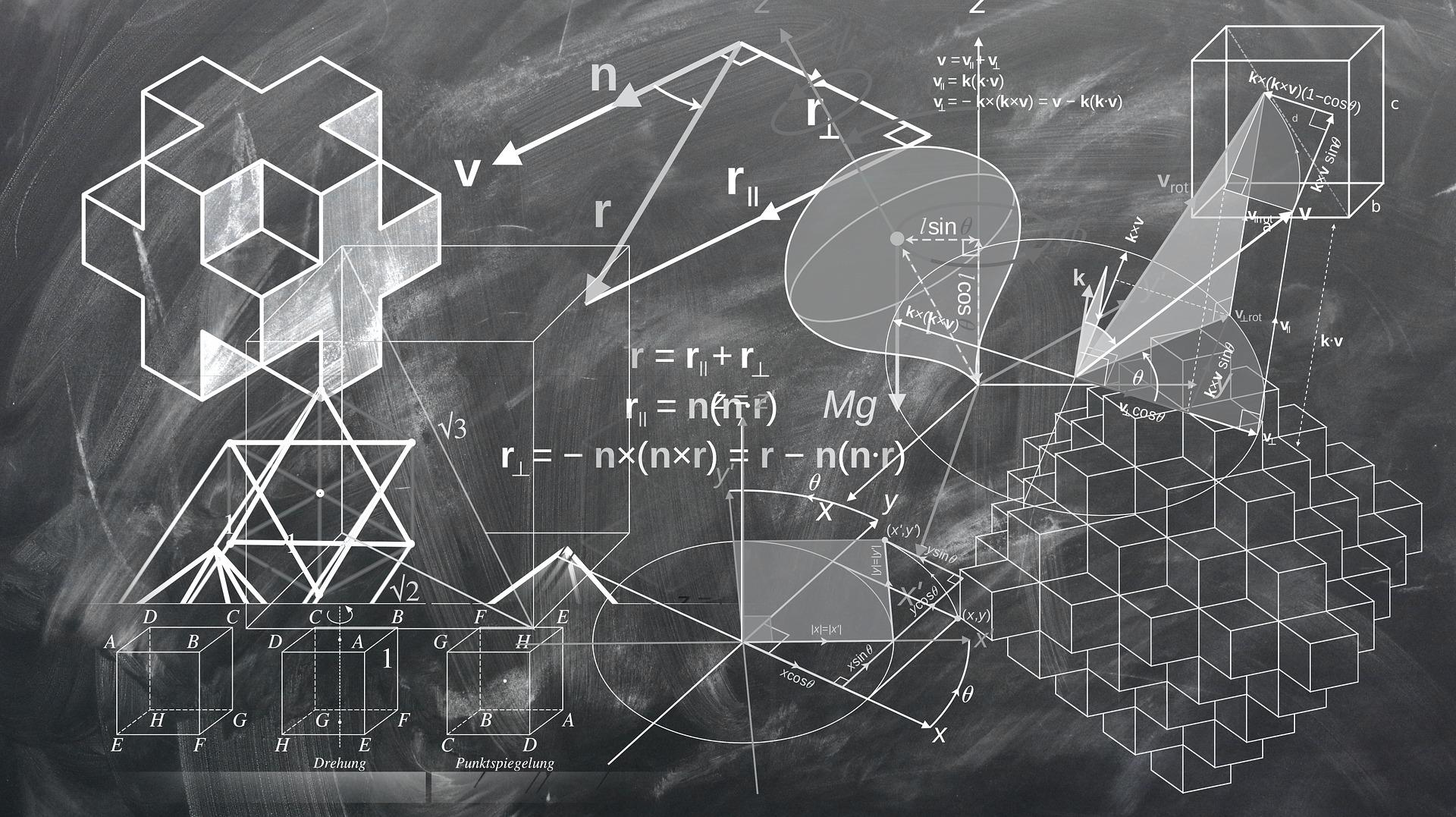The science behind mathematics forms a fundamental part of human thought and logic. It is integral to our understanding of the world and ourselves. Mathematics is not just about numerical values, theorems, and quadratic equations. Mathematical exercise is an effective way of building mental discipline, logical reasoning, and mental rigor. Moreover, mathematical knowledge is also crucial to our understanding of other school subjects such as natural science, social studies, and even music and art.
Mathematics is needed for students to engage in society, especially with an increase in technology and digitalization.
How important is maths for your career? Understanding the important career opportunities one can have if one practices and enjoys the field of mathematics.
Students, especially those who wish they didn't have to do the math, often ask: why does mathematics hold such an important place among other subjects? What is the significance of mathematics in the overall school curriculum? Here are a few thoughts for those students who may be encouraged to think differently:
Ancient Origins:
- Vedic Mathematics: The origins of mathematics in India date back to the Vedic period (around 1500–500 BCE). The Vedas, ancient Indian scriptures, contain early references to mathematics in the form of geometric and arithmetic concepts used in rituals.
- Sulba Sutras: Ancient texts like the Sulba Sutras, part of the Vedic literature, contain some of the earliest known concepts of geometry, including instructions for constructing altars and other religious structures.
Contributions to Number System:
- Introduction of Zero: India is credited with the introduction of the concept of zero as both a number and a placeholder in the decimal number system, a breakthrough that revolutionized mathematics globally.
- Decimal System: The modern decimal system (base-10), including the use of zero, was first developed in India and later transmitted to the Arab world, from where it spread to Europe.
Significant Mathematicians:
- Aryabhata (476–550 CE): Aryabhata was one of the first to treat zero as a number and made significant contributions to trigonometry and algebra. His work "Aryabhatiya" is an important text in the history of mathematics.
- Brahmagupta (598–668 CE): Brahmagupta's work on arithmetic and algebra is renowned, particularly his rules for computing with zero and negative numbers. His book "Brahmasphutasiddhanta" is a seminal text.
- Bhaskara II (1114–1185 CE): Bhaskara II made significant contributions to calculus, particularly in his work "Lilavati," where he explored concepts of arithmetic, algebra, and geometry.
- Srinivasa Ramanujan (1887–1920): Ramanujan was a self-taught mathematician whose work on number theory, continued fractions, and infinite series had a profound impact on modern mathematics.
Development of Trigonometry:
- Sine and Cosine Functions: The concepts of sine and cosine functions, crucial to modern trigonometry, were developed in India. The Sanskrit terms "jya" and "koti-jya" were translated into Arabic as "jiba" and "kutta," which later became "sine" in Latin.
Astronomical Calculations:
- Accurate Calculations: Indian mathematicians made accurate calculations of celestial movements, which were integral to the development of Indian astronomy. Aryabhata, for example, calculated the value of pi (π) and the length of the solar year with remarkable precision.
Mathematics in Indian Education:
- Ancient Gurukuls: Mathematics was taught in ancient Indian gurukuls, where students learned arithmetic, algebra, geometry, and astronomy.
- Modern Education System: Today, mathematics is a core subject in Indian schools, with a strong emphasis on preparing students for competitive exams in engineering, science, and technology.
Influence on Global Mathematics:
- Transmission to the West: Indian mathematical knowledge, particularly the decimal system and concepts of algebra and trigonometry, were transmitted to the Islamic world and then to Europe, influencing the development of mathematics globally.
Institutions and Research:
- Indian Institutes of Technology (IITs): India is home to some of the world's leading institutions for mathematics and science education, such as the IITs and the Indian Statistical Institute (ISI).
- Research Contributions: Indian mathematicians continue to contribute to global research in various fields, including number theory, algebra, and applied mathematics.
Know your board exam timetable for 2024 to be well-prepared!

India's contributions to mathematics have been profound and far-reaching, influencing the development of mathematical thought and education worldwide. From the introduction of zero to advanced modern research, Indian mathematics has played a pivotal role in shaping the global mathematical landscape.

Mathematics In Class 11 In India
Mathematics has a unique place in STEM education as machines do most of the calculations that students are taught in K-12. Moreover, to be a successful college and university student, general education mathematics requirements help students develop critical thinking and quantitative analysis skills.
Key Topics Covered in Class 11 Mathematics:
- Sets and Functions:
- Sets: Understanding sets, subsets, operations on sets, and Venn diagrams.
- Relations and Functions: Types of relations, functions, domain, range, and graphs of functions.
- Trigonometric Functions: Trigonometric identities, functions, and their graphs.
- Algebra:
- Complex Numbers: Introduction to complex numbers, polar representation, and the quadratic equation.
- Quadratic Equations: Solutions of quadratic equations and their properties.
- Sequences and Series: Arithmetic progression (AP), geometric progression (GP), and related problems.
- Permutations and Combinations: Basic counting principles, factorials, and binomial theorem.
- Coordinate Geometry:
- Straight Lines: Slope, various forms of equations of a line, and the distance between two points.
- Conic Sections: Parabola, ellipse, and hyperbola, along with their standard equations and properties.
- Calculus:
- Limits and Derivatives: Introduction to limits, continuity, and differentiation. Basic derivative rules and applications.
- Statistics and Probability:
- Statistics: Measures of dispersion, mean, variance, standard deviation, and data representation.
- Probability: Basic probability concepts, addition and multiplication rules, and conditional probability.
- Mathematical Reasoning:
- Logic: Statements, logical operations, and various types of reasoning.
- Linear Inequalities:
- Inequalities in one and two variables: Graphical solution of linear inequalities.
Importance of Class 11 Mathematics:
- Foundation for Class 12: The topics covered in Class 11 are essential for understanding the more advanced concepts in Class 12, especially for students pursuing science or engineering.
- Competitive Exams Preparation: The syllabus is aligned with the requirements of various competitive exams like JEE, NEET, and others.
- Critical Thinking: Mathematics in Class 11 helps in developing logical reasoning and problem-solving skills, which are crucial for higher studies and various professional fields.
Maths understanding is a gateway to understanding the world around us. We are surrounded by maths, although we seldom realize it. We use math skills and capabilities every day – every profession uses maths to perform their job better and to get ahead in the world.
Know your high school maths syllabus.
Is Class 11 Mathematics Difficult For Students?
Class 11 Mathematics is often considered challenging by many students, primarily because it marks a significant transition from the relatively simpler concepts taught in earlier classes to more complex and abstract mathematical ideas. However, whether it's "difficult" can vary depending on several factors.
Reasons Why Class 11 Mathematics Might Be Perceived as Difficult:
- Advanced Concepts:
- Class 11 introduces new and advanced topics such as calculus, trigonometry, complex numbers, and coordinate geometry. These subjects require a deeper understanding of mathematical principles and are foundational for higher studies in science and engineering.
- Increased Complexity:
- The problems in Class 11 are generally more complex and require multi-step solutions. This complexity can be daunting for students who are not used to such rigorous problem-solving.
- Transition from Class 10:
- The jump in difficulty level from Class 10 to Class 11 is significant. Students often find the pace and depth of the syllabus more demanding, which can lead to initial struggles in adapting to the new level of rigor.
- Application of Concepts:
- Unlike in previous years, Class 11 Mathematics emphasizes the application of concepts in various contexts. This means that memorization alone is not enough; students need to understand how to apply their knowledge to solve problems.
- Foundation for Competitive Exams:
- The syllabus is aligned with the requirements of competitive exams like JEE, which are highly challenging. The focus on concepts that are crucial for these exams adds an extra layer of difficulty.
- Time Management:
- Balancing Mathematics with other subjects, especially in the science stream, can be tough. The extensive practice required for mastering Class 11 Maths can overwhelm students if they do not manage their time effectively.
Regular practice is essential in Class 11 Mathematics. Working on problems daily helps reinforce concepts and improve problem-solving skills.
Did you miss out on a chance to clear your Board exams? It's not too late for adults to take Board exams.
Maths: A Universal Language
Maths is a universal technical language. Any achievements of students in the subject will be recognized in all countries of the world. While the mathematical qualifications in other countries might not be equivalent to those found in India, students can rest assured that their level of mathematical understanding will be universally accepted across the world of education, no matter where they are studying or working.
Looking for private maths coaching near me? Find a Superprof maths tutor to help you with class 11 Maths at home or online.
It is quite fascinating to think that Maths is the only language that is the same for all humans, regardless of nationality, culture, religion, or gender. So, why not sign up for Maths tuitions at home and boost the development of this universal language in your own life? Indeed, with the relentless march of digital technology, it is not difficult to find online maths tutors for class 11 math or class 12 math. With an online maths tutor, you can surely master any maths concepts you may be having trouble with.
Check out these simple revision tips for the Maths exam.
Mathematics and Logic
There are ongoing advances in technology at a rapid pace and the basis of many of these technological changes is mathematics and logic. These changes are so rapid that it would be difficult to predict the skills that people will need in the future workplace or at home in the coming years. But a good basis in mathematics, statistics, and technology will make students flexible enough to adapt to the advances in technology.
Check out this comprehensive maths guide for classes 11 and 12.
Maths for Every Job
It is common knowledge that scientific careers involve the use and application of math. However, they are not the only careers to do so. Even operating a cash register requires a basic understanding of arithmetic. People working in a factory must be able to do mental arithmetic to keep track of the parts on the assembly line. In fact, every job requires math because one must know how to interpret the pay-check and balance a budget.

Models in Mathematics: An Invisible Technology
Mathematical models, as experienced and utilized by people, is an invisible technology. It is invisible not only in the actual numbers which the models produce as "solutions", but invisible in its derivation. These models are constructed by people who want an answer to a problem they see, based on their assumptions, using methods that they deem appropriate. The general public typically sees the answer only. They rarely even see the original question that drove the modeling process. Yet, they become consumers of these model-generated solutions.
Our relationship with mathematical models is like the relationships with many other technological developments. For example, many people find themselves upgrading their perfectly functional computers to more powerful, faster, and bigger machines to accommodate more advanced software. There may not have been any problems with the computer's existing software or the computer itself.
Use past questions papers to revise maths lessons.
Some mathematical models produce solutions that may be rejected by the public. In many of these cases, the community is oblivious to the mathematics that has gone into measuring the risk factor of technological development. The specific questions which drive the decision-making processes for the different interest groups are quite different. What is rejected by the community may not be what they thought they were rejecting.
The study and applications of mathematics have evolved to help us solve problems, big and small. Math teaches us to think logically and identify and state the problem clearly. Moreover, we use maths to plan how to solve a problem. Mathematics helps in the development of the ability to recognize mistakes in thinking or analysis of all that we encounter in our lives.
Summarise with AI:
















